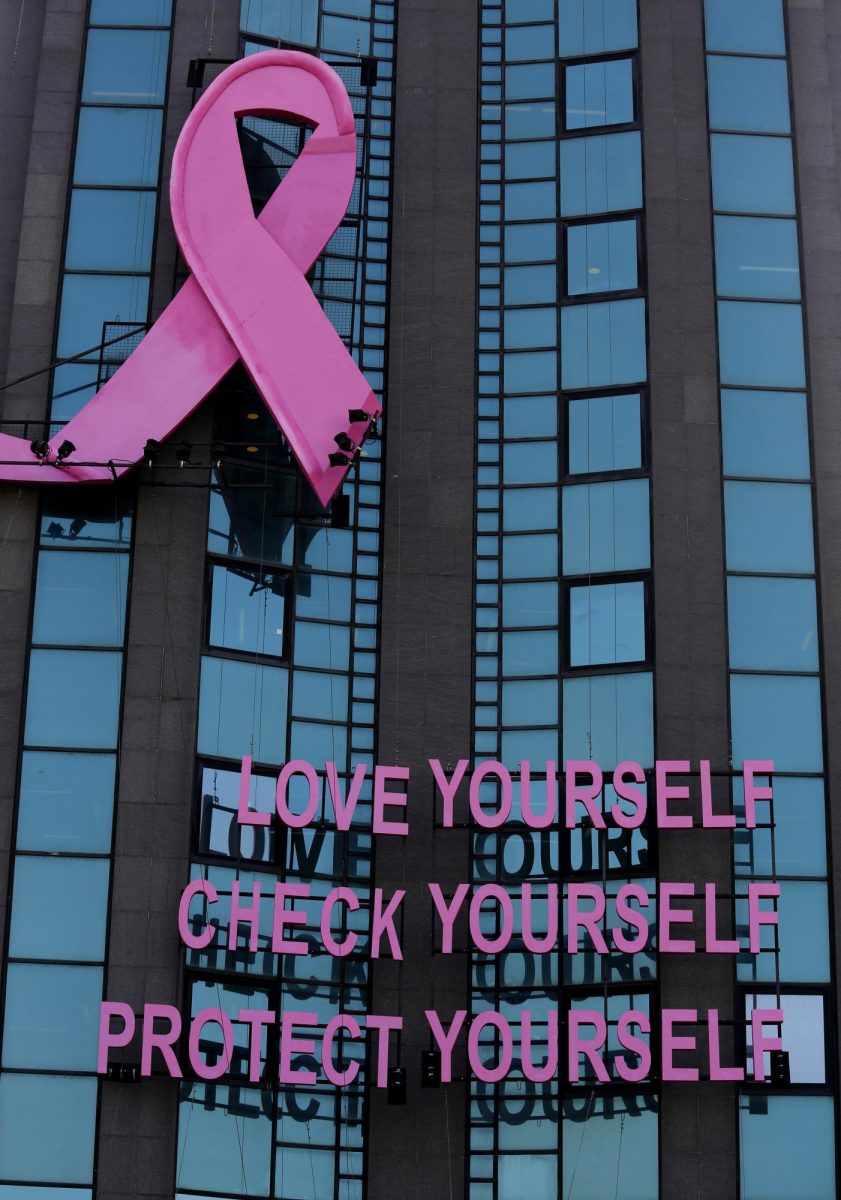October is Breast Cancer Awareness month and campaigns are showing their support for breast cancer awareness. Cancer is the second leading cause of death in the United States, but advances such as genetic testing are saving lives. A study conducted by Ranjit Manchanda suggested BRCA testing in the United States can prevent upward of 2,666 breast cancer cases and upward of 449 ovarian cancer cases per every million women. Women have a one in eight chance of getting breast cancer in their lives, according to the American Cancer Society. In 1996, the BRCA test was approved for use. The simple blood test is used to test for mutated genes related to breast cancer. The two main genes that the BRCA test tests for are BRCA1 and BRCA2. These are genes that can increase one’s chance of getting breast cancer. While those are not the only genes that are related to breast cancer, they are the most common. “It is not appropriate to test everybody for the BRCA gene,” Jennifer Hecht, a breast surgeon at Texas Breast Specialists-Fort Worth Cancer Center, said. “Only five to ten percent of the entire world’s population has a genetic mutation, so it is more important that people know their family history and their risk.” “If anyone is diagnosed with cancer then we offer genetic testing to them,” she said. Before deciding to get tested for the BRCA gene, it is important to know your family history. If someone were to have the BRCA gene and had children, each child would have a 50% chance of inheriting the gene. While BRCA is widely associated with breast cancer, it is also known to be associated with ovarian and pancreatic cancer, as well as prostate cancer in men. The average age to start getting mammograms is age 40. Any younger than 40 and the mammograms become harder to read as the breast tissue is more dense. However, new standards are being set for women in their 20s. “The American College of Radiology and American Society of Breast Surgeons now recommends that women have a risk assessment by the age of 25,” Hecht said. “A risk assessment is basically looking at all the different factors that come into play when we are diagnosing somebody that maybe has an increased risk for breast cancer.” They two experts emphasized the importance of getting screened early and taking advantage of the resources provided.
Breast Cancer Awareness month shines a light on the importance of testing
By Caroline Denning, Staff Writer
Published Nov 7, 2023
FILE: October is Breast Cancer Awareness month and campaigns are showing their support for breast cancer awareness. Photo by AP
More to Discover







